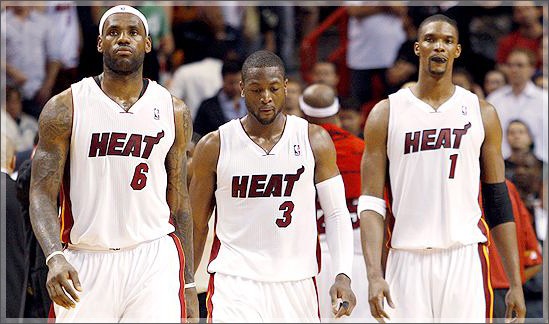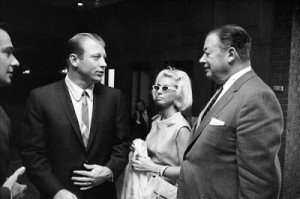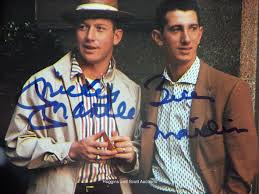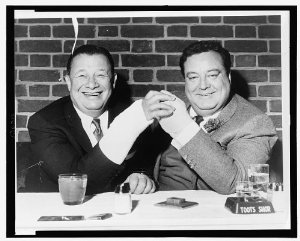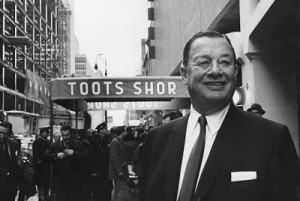DISPATCH FROM MIAMI–THE MORNING AFTER
By Paul Levine
This is not only about the LeBron James homecoming. It’s about us all.
In Miami, we are coming to grips with LeBron leaving. Nearly everyone respects his decision. He didn’t leave the Miami Heat for the glamour of New York or the glitz of L.A. He went home.
LeBron James Homecoming: Home Trumps All
My son Mike Levine, a Miami sportscaster, just wrote me an e-mail, saying: “Home usually trumps all and wins the heart.”
It’s true for the LeBron James homecoming. Cleveland wins, not because the Cavaliers’ have potential with talented young players, but because it is home.
As Dorothy says at the end of “The Wizard of Oz”:
“Toto, we’re home. Home…And I’m not gonna leave here ever, ever again, because I love you all, and – oh, Auntie Em – there’s no place like home!”
So it is with the Wizard of Akron. (Okay, so maybe he’ll vacation in spots a little more exotic than northeastern Ohio. Maybe he’ll even hang onto his Miami home).
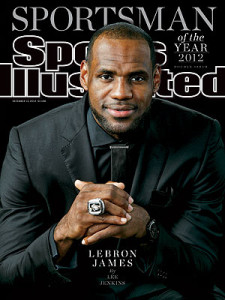
In his heartfelt Sports Illustrated essay, Lebron writes:
“I want kids in Northeast Ohio, like the hundreds of Akron third-graders I sponsor through my foundation, to realize that there’s no better place to grow up. Maybe some of them will come home after college and start a family or open a business. That would make me smile. Our community, which has struggled so much, needs all the talent it can get. In Northeast Ohio, nothing is given. Everything is earned. You work for what you have. I’m ready to accept the challenge. I’m coming home.”
My son said that passage reminded him of my blog last October about planning a homecoming trip to Penn State, which ended with this:
“I will take a time machine to an earlier, simpler time of pep rallies and pop quizzes, of crisp autumn air and all-nighters. A time when the future was without limits and possibilities were endless. It is homecoming, and I am going home.”

(If you are so inclined, you can read the entire blog, “Homecoming Weekend: It’s Not Just a Football Game,” here.)
Speaking of time machines and going home, just last week, I watched “Walking Distance,” a first season (1959) episode of “The Twilight Zone.” It’s about a stressed-out executive (Gig Young) who yearns for the innocence of boyhood. He finds his old hometown frozen in time 25 years earlier and re-visits his 11-year-old self. But as he learns, there’s no place for him there now.
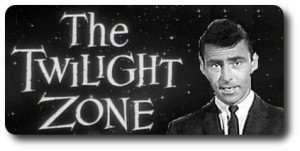
Here’s Rod Serling’s closing narration:
“Martin Sloan, age 36. Successful in most things but not in the one effort that all men try at some time in their lives—trying to go home again. And also like all men perhaps there’ll be an occasion, maybe a summer night sometime, when he’ll look up from what he’s doing and listen to the distant music of a calliope, and hear the voices and the laughter of the people and the places of his past. And perhaps across his mind there’ll flit a little errant wish, that a man might not have to become old, never outgrow the parks and the merry-go-rounds of his youth. And he’ll smile then too because he’ll know it is just an errant wish, some wisp of memory not too important really, some laughing ghosts that cross a man’s mind, that are a part of The Twilight Zone.”
I trust that the LeBron James homecoming is not based on such an “errant wish,” but rather on the solid underpinnings of wanting to help the place (and the people) that formed him.
LeBron James Homecoming: What Has Changed?
LeBron James has matured, not just as a basketball player. On the court, he is as unselfish a superstar who has ever played the game. He makes the players around him better. In his private life, he is a loving husband and a doting father. He just displayed the most human of emotions: he yearns for home. When he gets there, he will notice changes from his high school days in Akron and his years as a young pro in Cleveland. Nothing stays the same.
He will be welcomed, not so much as a prodigal son, but as a conquering hero. Those of us in Miami are thankful for the four years he spent here. Go home in peace and triumph. Godspeed.
(Paul Levine is the author of the Jake Lassiter and Solomon vs. Lord series. His most recent book is “State vs. Lassiter,” currently nominated for a 2014 Shamus Award).

